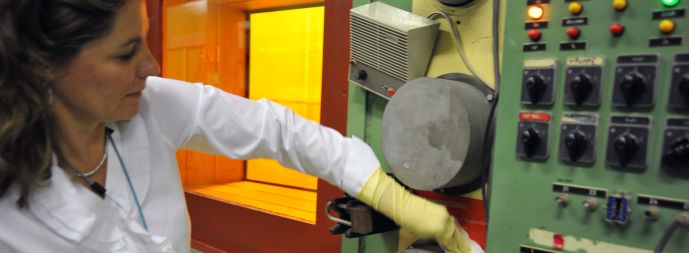An American with a French passport , Bush s new poodle , a populist neo-conservative : neither Nicolas Sarkozy s recent statements nor his behavior has substantiated these accusations hurled at him before his election as president of the French republic. True, the candidate did not attempt to contradict his enemies or conceal his admiration for President George W. Bush and his policies, whether on domestic or foreign issues. His brief pre-election visit to the White House, where he insisted that photographs be taken of his handshake with Bush, was considered a significant message.
Sarkozy is undoubtedly a man of the right, probably the most conservative president France has had since the establishment of the Fifth Republic by General Charles de Gaulle in 1958. But the moment he crossed the threshold of the Elysee Palace, Nicolas Sarkozy projected an unexpected new image of himself. Although he is not himself a Gaullist, he proceeded to implement a foreign policy similar to the founder of the Fifth Republic.
He chose as his diplomatic counselor at the Elysee Palace Ambassador Jean-David Levitte, a pure product of the Quai d Orsay, a Gaullist stronghold, and a man who exercises much more influence than Foreign Minister Bernard Kouchner, a pro-American socialist. In a recent television interview, Levitte indicated that French foreign policy would remain fundamentally unchanged (which has been the case during the past 50 years, no matter who was president); he stated that the controversial Arab policy of the Fifth Republic would be pursued with the purpose of developing and consolidating relations with states of the Middle East. Plainly, French national interests do not change from one president to another.
Sarkozy has been rather vague concerning the Arab-Israel conflict, while stating over and over again that the security of the Jewish state should be guaranteed alongside the creation of a viable Palestinian state . He is not an unconditional supporter of all Israeli policies; it is well-known that Paris and Jerusalem do not see eye to eye on various problems. France is urging PM Ehud Olmert to accelerate the release of pro-Fateh prisoners, to ease freedom of movement in the occupied territories by removing many checkpoints and to deal with Hamas in Gaza by means other than violence. More importantly, Paris shares the Arab view that the international conference to be held next November should discuss core issues leading to a lasting peace. It is also no secret that French diplomacy has always maintained that future frontiers should be as close as possible to the pre-1967 green line , in conformity with UN Security Council Resolution 242, and considers East Jerusalem as occupied territory .
Unlike his predecessor at the Elysee Palace, Sarkozy does not denounce American unilateralism. But speaking of relations with the United States, he has declared more than once that friendship does not mean allegiance and allies do not have to be aligned . These are precisely expressions used by General de Gaulle and his successors. Contradicting what many believe he said, Sarkozy has denied vigorously that he ever approved of the invasion of Iraq by American and allied troops. I believe that it was a very serious mistake, he stated without blinking, and he endorsed Jacques Chirac s statement that American troops should be withdrawn from Iraq as soon as possible according to a precise timetable . These remarks were probably intended to satisfy a majority (more than 70 percent) of his countrymen who remain hostile to the American occupation of Iraq.
The French president s alarmist prediction that war will be unavoidable if Iran proceeds to produce atomic weapons has been widely interpreted as favorable to President Bush s decision to keep all options on the table, including the use of force . A close examination of the statement, however, indicates that Sarkozy expressed his preference for a diplomatic solution, coupled with additional sanctions if necessary. He did not even hint that he would participate in military operations that, he said, would be a catastrophic consequence of Tehran s stubbornness.
Although pursuing the same objectives as George Bush and Jacques Chirac in Lebanon, the French president has adopted a more flexible attitude toward Hezbollah and Syria. He insisted on including representatives of the Islamic movement in the so-called reconciliation conference held recently near Paris. His spokesmen explained that Hezbollah was not on the European Union s list of terrorist organizations and that, in any case, a deal with Hassan Nasrallah was indispensable to a settlement of the Lebanese crisis. He has also sent emissaries to Damascus with the intention of initiating a useful dialogue .
Clearly, Nicolas Sarkozy is more ambitious than his predecessors in implementing la politique Arabe de la France . His spectacular breakthrough in Libya, where he established a close political, military, nuclear and cultural relationship, demonstrates that ideology is of no concern to him.
Is he unrealistic in planning to establish a Mediterranean union that would assemble all states bordering the sea? The obstacles he has to overcome are overwhelming. Will the Arab states accept to be associated with Israel in implementing a large variety of joint ventures in the fields of economic development, the promotion of health, education, security and the protection of the environment? Will they trust Sarkozy, who has repeatedly committed the blunder of proclaiming that colonialism also had positive effects in occupied countries?
Will Algeria and Morocco, whose relations are all but friendly, accept to cooperate? As for Turkey, it is doubtful that it would join an alliance intended to become an alternative to its membership in the European Union. Will the United States allow France to establish its preeminence in a region where important American interests are at stake? The French ambassador in Tunisia was right in saying that the Mediterranean union is neither a project nor even a precise concept. Will it ever mature?
Eric Rouleau, journalist and author, was French ambassador to Turkey and Tunisia. From 1955 to 1985 he was a special correspondent and editorial writer for Le Monde. This commentary is published by DAILY NEWS EGYPT in collaboration with bitterlemons-international.org

